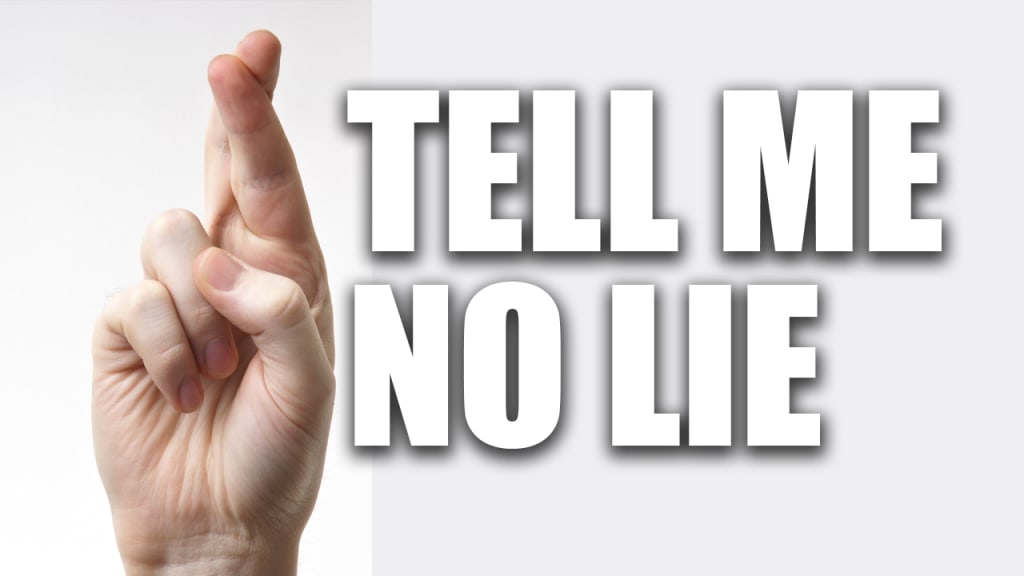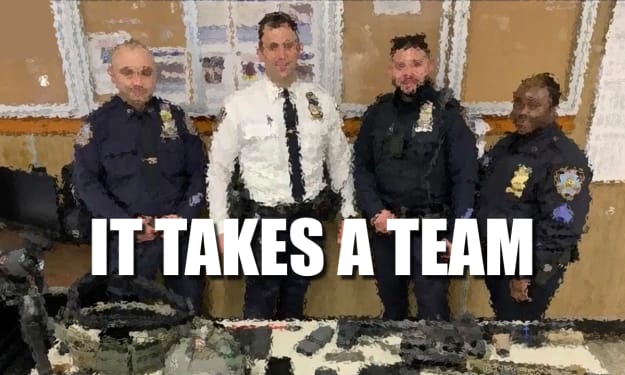Tell Me No Lie
Journalists get away with everything.

As a journalist, filmmaker, and media critic, I ask why do consumers tolerate experts promoting lies when the truth is known?
Surely there are things with which you are familiar, and some “expert” writer who has a background as shallow as what they learned in school and left it at that, keeps repeating a falsehood which only reinforces the lie or the myth.
As an example. The lie that gangster Bugsy Seigel created Las Vegas.
Due to lies in the film “Bugsy” and the glamorization of the mob, people believe that this punk of a killer had the brilliance to create Las Vegas. Imagine that. This thug from Murder Inc., out of the streets of Brooklyn, had the business brilliance of a supernova to take a stretch of land in the middle of nowhere and create a mecca for gaming and entertainment.
On its face, one should question if that was possible, let alone believe the lie. And it is a lie. I am not going into the real story of The Flamingo Hotel, except to say he had nothing to do with it. He rode other's coattails -- people who were already creating that early era of Las Vegas. Through the work of “professional” documentarians and historians, the public is led to believe Benjamin Seigel used his acumen for killing and running rackets and turned that into the level of Harvard Business School thinking. Warren Beatty continued the lie in “Bugsy” so those who have initials like Ph. D after their name believed him. The myth endured.
Television experts and critics claim the original “Star Trek” was canceled due to low ratings. That too is a lie. The show had some very impressive ratings but due to all the headaches the network had with its creator/producer, Gene Roddenberry, they moved the show to a horrible time slot and sunk the series. It imploded. "Star Trek" was rumored to have a small budget, but it was the most expensive television show of its time.
Scholars like to point out the inner revelations of being one with nature as described by Henry David Thoreau in his book, “Life in the Woods.” Spiritual discovery! Nothing but nature as a companion! Solitude! When in reality he had visitors all the time. He was a whopping two miles away from Concord MA which was settled 200 years earlier.
And yet, editors perpetuate such lies destroying their own credibility and that of their publications.
Why? Are they lazy? Do they not care? Do they have no respect for their readers and subscribers? Are they not doing a disservice to those who read and presume they are reading the truth?
Consumers encounter this laziness on the Internet with articles such as “The Greatest 25 TV Shows of All Time.” According to who? And how far back is “all time?” The 1930's? Did someone look at thousands of episodes and rank the shows based on an objective scale of what makes a TV show great? Of course, we realize it's clickbait to fill up your monitor with ads and track your Internet cookies. But it still takes a lot of nerve to put one's name on such a sham.
Perhaps we don't care when lying is relegated to things only found on a “Jeopardy” board. Things that, at the end of the day, don't make any difference if it's a lie or not to a publisher or writer.
Imagine if someone printed a recipe for chocolate cake calling for five cups of sugar instead of two. Or they wrote instructions for replacing brakes and omitted to put the slider bolt back on once you've replaced the pads. Whether it is a subjective lie of how much sugar to put in the cake or one of omission to ensure your brakes are safe, these lies have consequences.
This flexible approach to the truth makes room for prejudicial beliefs such as a Texas student worksheet, titled “The Life of Slaves: A Balanced View.” Students were asked to list the bad and good aspects of being a slave. The claim and assignment were so outrageous it caught the attention of elected officials who could not let the assignment stand surmising some slaves were living the high life compared to their homeland. Or, more recently, there is the “both sides” argument with white supremacy. Although it was an opinion, society was quick to jump on that belief as a lie. But what if a writer took it as fact? Would we be just as upset as those who jumped on the course material?
When we say a lie is being perpetuated it is based on a set of facts. A professor of history writes that Max Quizbanger was the first President of the United States. Do we let that stand? Of course not. We would be in disbelief and let everyone know on Facebook this professor is an idiot. Why aren't we as angry when we read something with less societal impact and let the publisher, editor or writer know it and demand better?
Should we be any less motivated to correct a lie when we feel the subject is trivial? Perhaps it all comes down to the reader's passion for the subject.
Professional sports broadcasters and writers will say quarterback Tom Brady is the GOAT – greatest of all time. However, on paper, for nearly every statistical comparison, quarterback Aaron Rodgers is the GOAT. But Brady's six Superbowl wins trumps Rodgers' single victory. That single “fact” does not erase that Brady was out performed. That is the truth.
Our definition of GOAT may be different. To some it's based on direct comparison and to others it's an emotional appeal. This is an opinion since Brady's performance is not as good as another player. The claim is permitted since he helped take his team to victory more than someone else. That is their justification for declaring Brady the GOAT, even though it is not based on fact. Can we have two separate truths and two separate lies based on people's definitions of what the truth is? Sure. Can there be more than one set of facts to base a conclusion of what a lie is and what is not? No. Facts can be twisted to create someone's truths such as in cases of “political spin” and the danger of not knowing which aspect of truth-telling any writer is using.
“It's OK if Bugsy Seigel didn't create Las Vegas – people think he did and no one cares so why check?”
I am sure there are things you read and hear you know are lies. It could be about a hobby or your profession. And yet, the people who are allowed to spread untruths never seem to be called out, fired, demoted, censured, or compelled to apologize when they get it wrong. And these are “professionals” with their highly-vaulted degrees who know their stuff.
(Unless it's some plagiarism scandal – but that's about copying and not questioning the truth of the material.)
Platforms and publishers make it difficult to reach their writers and editors. In the past, publications used to list an email address. Not so much anymore. You have to find a social media account where your message will be buried in their feed or locate a work email. Even comment boxes are rare. Why? Because they don't want people correcting them. They don’t want to answer to their readers. They have no courage to stand up and say, “You know, I goofed on that. I checked it out, and you're right – I appreciate the heads up.” On occasion there may be a comment box, but not as much as there used to be.
The public must hold these experts accountable. I know we are all busy trying to remember to keep a mask on our face. But if you run across something you know is incorrect, leave a comment or see if you can get in touch with the columnist or author.
Lies are not doing anyone any good. And without correction, real history is erased no matter how trivial.
© 2020 by Kevin S. Birnbaum





Comments
There are no comments for this story
Be the first to respond and start the conversation.